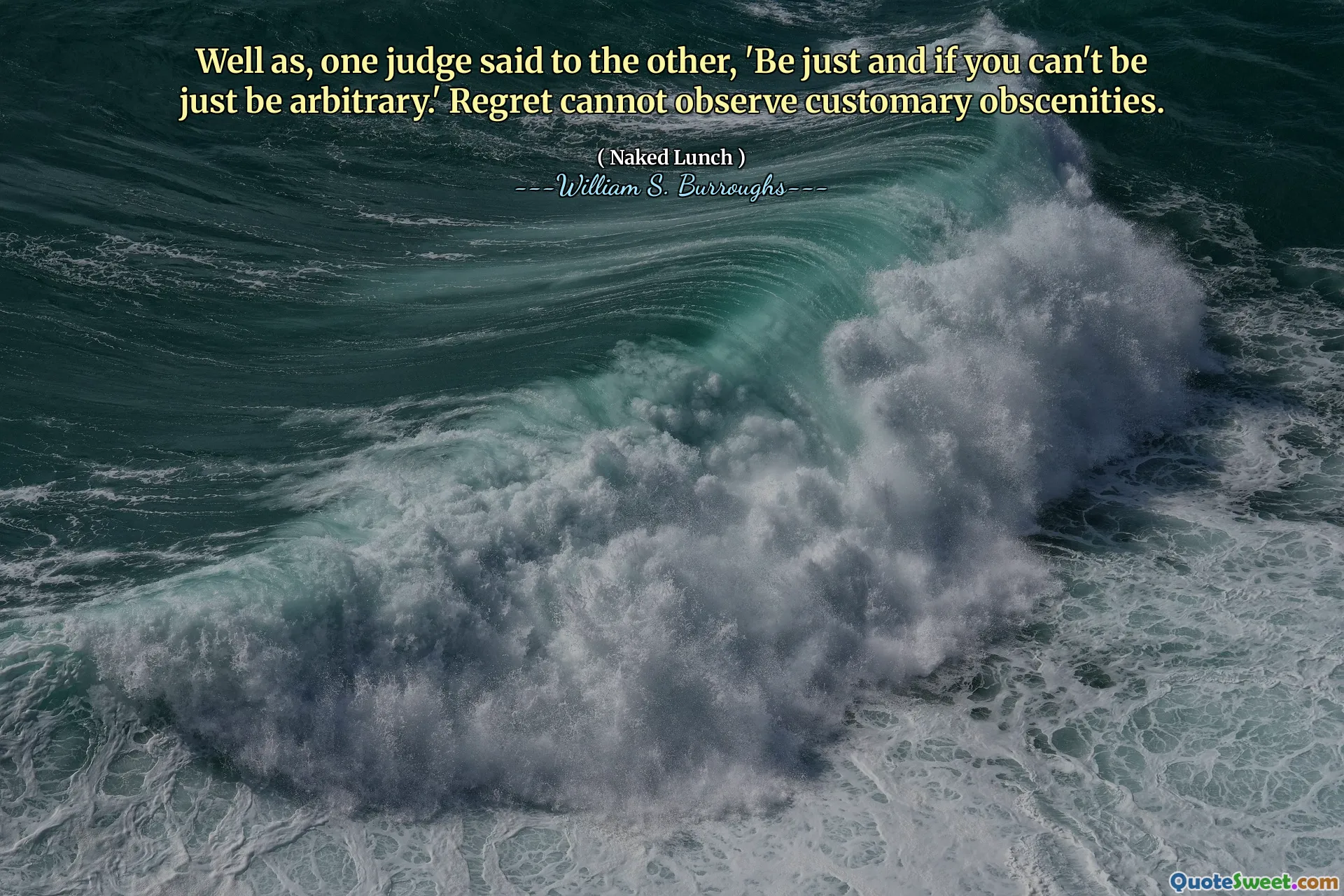
Well as, one judge said to the other, 'Be just and if you can't be just be arbitrary.' Regret cannot observe customary obscenities.
In "Naked Lunch," William S. Burroughs presents a striking commentary on the nature of justice and authority. The quote highlights a conversation between two judges, juxtaposing the ideals of fairness with the reality of arbitrary decision-making. It suggests that when true justice is unattainable, individuals in power might resort to making random or biased choices, reflecting the complexities and flaws within judicial systems.
The second part of the quote, "Regret cannot observe customary obscenities," implies that feelings of remorse exist outside societal norms and expectations. This suggests that personal regret is a profound emotion that transcends conventional morality, challenging readers to reconsider the boundaries of ethics. Burroughs forces us to confront the darker aspects of human nature, sparking critical thought about justice and accountability.











